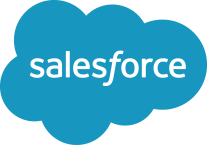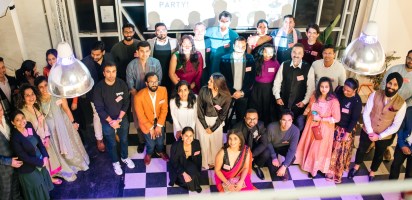
Nam Truong, human-centred technologist at Law Squared. Source: Supplied.
Generative AI has the game-changing potential to increase organisational efficiency, support strategy, and assist creativity.
Although most people are still in the learning and experimental phase of their generative AI journey, our experts say it will soon become a part of everyday work. Here’s their advice for how to leverage its power to grow your business and build resilience.
Use AI to enhance roles and increase engagement
Hareta McMullin, founder of Third Space People, emphasises generative AI’s ability to streamline tasks, increase productivity, and reduce the load for employees.
She advises employers to consider how automating certain aspects of people’s jobs can free them up to focus on more strategic and high-value work. The benefits of this approach include increased morale and engagement, improved retention and workplace culture, a boost to your employer brand, and greater innovation.
“If, from an employee perspective, generative AI can take away potential elements of my job that I find time-consuming or frustrating and give me the time to work on more fulfilling areas,” McMullin says, “that then leads back into your work design and organisational design.”
She suggests you start by asking your employees where they feel most bogged down by tedious tasks, and then brainstorm and experiment with ways to use generative AI to support them in these areas.
Take a human-centred approach
Nam Truong, a human-centred technologist who leads the technology consulting team at Law Squared, believes that generative AI can be used to drive more efficient service delivery and a better customer experience. But he stresses that “the human touch” will be more valued now than ever.
“If technology provides too much of a personalised experience, it can become scary,” he says. “Like, if I was just speaking about something and now I’m seeing all these ads for it,” that can be eerie and uncomfortable, “But when humans provide that experience, it’s warming. It’s comforting to know that you can talk to someone, and they know your story, what you need, and can provide that.”
For Truong, the question then becomes: How can we use AI to deliver more value to customers and enhance human-facilitated experiences?
“With the advent of new technology, people always need to relearn and retrain,” he says. “But I think if we approach adopting this technology with a mindset of ‘We’re looking for it to help us be more human and deliver our services and products in a more ethical, human and sustainable way’, I think that people will be more open to changing their behaviour.”
So, what should growth-and future-focused employers do now?
1. Focus on change leadership and upskilling your workforce
McMullin underscores change leadership’s role in successfully adopting generative AI, explaining that effective communication, education, and addressing employee fears are essential to facilitating a smooth transition.
“If your people are resistant, it’s going to cause a lot of friction and make that process feel really clunky and negative, so change leadership is huge,” she says.
She also believes upskilling employees to understand and leverage generative AI is critical to ensuring they remain relevant in a changing landscape.
2. Consider risk governance and values alignment
Truong highlights the importance of mitigating risks by aligning with reputable software solutions and established frameworks. Ensuring security and corporate governance standards are in place is crucial, especially in industries where trust and confidentiality are paramount.
“One of the reasons why we selected Salesforce is because we view it as the world’s biggest and best CRM, and we have trust in the platform,” Truong says. “They are among the world’s biggest players with the most talented developers and the most secure frameworks and risk governance frameworks—and, as a law firm, that’s the security standard we need to adopt AI.”
He adds that another important factor to consider is your core values and how your use of generative AI aligns with and supports your vision, mission and goals.
Both Truong and McMullin advocate for a balanced approach to incorporating generative AI into the workplace, focusing on efficiency gains, human-AI collaboration, ethics, and values alignment.
Now that every organisation has access to this efficiency-optimising technology, Truong reminds us that doubling down on the human experience will be vital to helping your business stand out from the crowd.
Read now: Don’t risk your rep: The importance of ethics and compliance in generative AI

Salesforce, the global leader in customer relationship management (CRM), empowers companies to connect with their customers in a whole new way.


